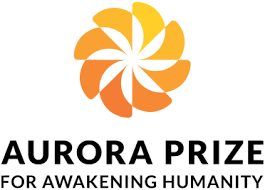Arnold Toynbee
(British historian, 1915)
“All these atrocities have been committed toward Armenians even though they have not done anything to invite them”.
Anatole France
(French author, 1916)
“Armenia is dying, but it will survive. The little blood that is left is precious blood that will give birth to a heroic generation. A nation that does not want to die, does not die”.
Fritdjof Nansen
(Norwegian public figure, 1915)
“The massacres that started in 1915 have nothing to compare with the history of mankind. The massacres by Abdul Hamid are minor in comparison to what today's Turks have done”.
Jacques de Morgan
(French scientist, 1917)
“The deportations of Western Armenians are nothing but concealed race extermination. There is no language rich enough to describe the horrors of it”.
Valeri Brusov
(Russian poet, 1917)
“Turks continued their previous policy. They would not stop commit massive and most awful massacres that even Leng Timur would not dare do”.
Fayer el Husein
(Arab publicist, 1917)
“Who can describe the feelings that an eyewitness experiences when he thinks of this heroic and unfortunate nation. Its courage and spirit surprise the world. A nation that yesterday was one of the most energetic and progressive nations of the Ottoman Empire is becoming a memory”.
Joseph Markwart
(German scientist)
“Even after proclamation of the Constitution, the main slogan of the Turkish policy has been ‘Without Armenians there will be no Armenian problem”(1916).
Henry Morgenthau Sr.
(U.S. Ambassador to the Ottoman Empire Ambassador, Morgenthau's Story, 1919)
When the Turkish authorities gave the orders for these deportations, they were merely giving the death warrant to a whole race; they understood this well, and, in their conversations with me, they made no particular attempt to conceal the fact. . . . I am confident that the whole history of the human race contains no such horrible episode as this. The great massacres and persecutions of the past seem almost insignificant when compared to the sufferings of the Armenian race in 1915.
James Bryce
(British Viscount October 6, 1915, speech)
The massacres are the result of a policy which, as far as can be ascertained, has been entertained for some considerable time by the gang of unscrupulous adventurers who are now in possession of the Government of the Turkish Empire. They hesitated to put it in practice until they thought the favorable moment had come, and that moment seems to have arrived about the month of April.
House of Lords, Hansard (5th series), Vol. XIX, 6 October 1915. Cols?
I am sorry to say that such information has reached me from many quarters goes to show that the figure of 800,000 which the noble earl thought incredible as a possible total for those who have been destroyed since May last is, unfortunately, quite a possilbe number. That is because the proceedings taken have been so absolutely premeditated and systematic.
Count Wolff-Metternich
(German Ambassador to the Ottoman Empire July 10, 1916, cable to the German Chancellor)
In its attempt to carry out its purpose to resolve the Armenian question by the destruction of the Armenian race, the Turkish government has refused to be deterred neither by our representations, nor by those of the American Embassy, nor by the delegate of the Pope, nor by the threats of the Allied Powers, nor in deference to the public opinion of the West representing one-half of the world.
Theodore Roosevelt
(US President, May 11, 1918, letter to Cleveland Hoadley Dodge)
...the Armenian massacre was the greatest crime of the war, and the failure to act against Turkey is to condone it ... the failure to deal radically with the Turkish horror means that all talk of guaranteeing the future peace of the world is mischievous nonsense.
Herbert Hoover
(US President, The Memoirs of Herbert Hoover, 1952)
The association of Mount Ararat and Noah, the staunch Christians who were massacred periodically by the Mohammedan Turks, and the Sunday School collections over fifty years for alleviating their miseries—all cumulate to impress the name Armenia on the front of the American mind.
Jimmy Carter
(US President, May 16, 1978, White House ceremony)
It is generally not known in the world that, in the years preceding 1916, there was a concerted effort made to eliminate all the Armenian people, probably one of the greatest tragedies that ever befell any group. And there weren't any Nuremberg trials.
Ronald Reagan
(US President, April 22, 1981, proclamation)
Like the genocide of the Armenians before it, and the genocide of the Cambodians which followed it, ... the lessons of the Holocaust must never be forgotten.
George Bush Sr.
(US President, April 20, 1990, speech in Orlando, Florida)
[We join] Armenians around the world [as we remember] the terrible massacres suffered in 1915–1923 at the hands of the rulers of the Ottoman Empire. The United States responded to this crime against humanity by leading diplomatic and private relief efforts.
John Evans
(US ambassador to Armenia said to American Armenians on February 19, 2005)
"Today I shall call this Armenian genocide". "I think that we, the US government, owe you, our fellow citizens, a more straightforward and honest discussion of this problem. I can tell you as a person who has studied this problem - I have no doubts about what happened." "I think that it is inappropriate for us, the Americans, to play with words in this case". "I believe that we must call a spade a spade."





